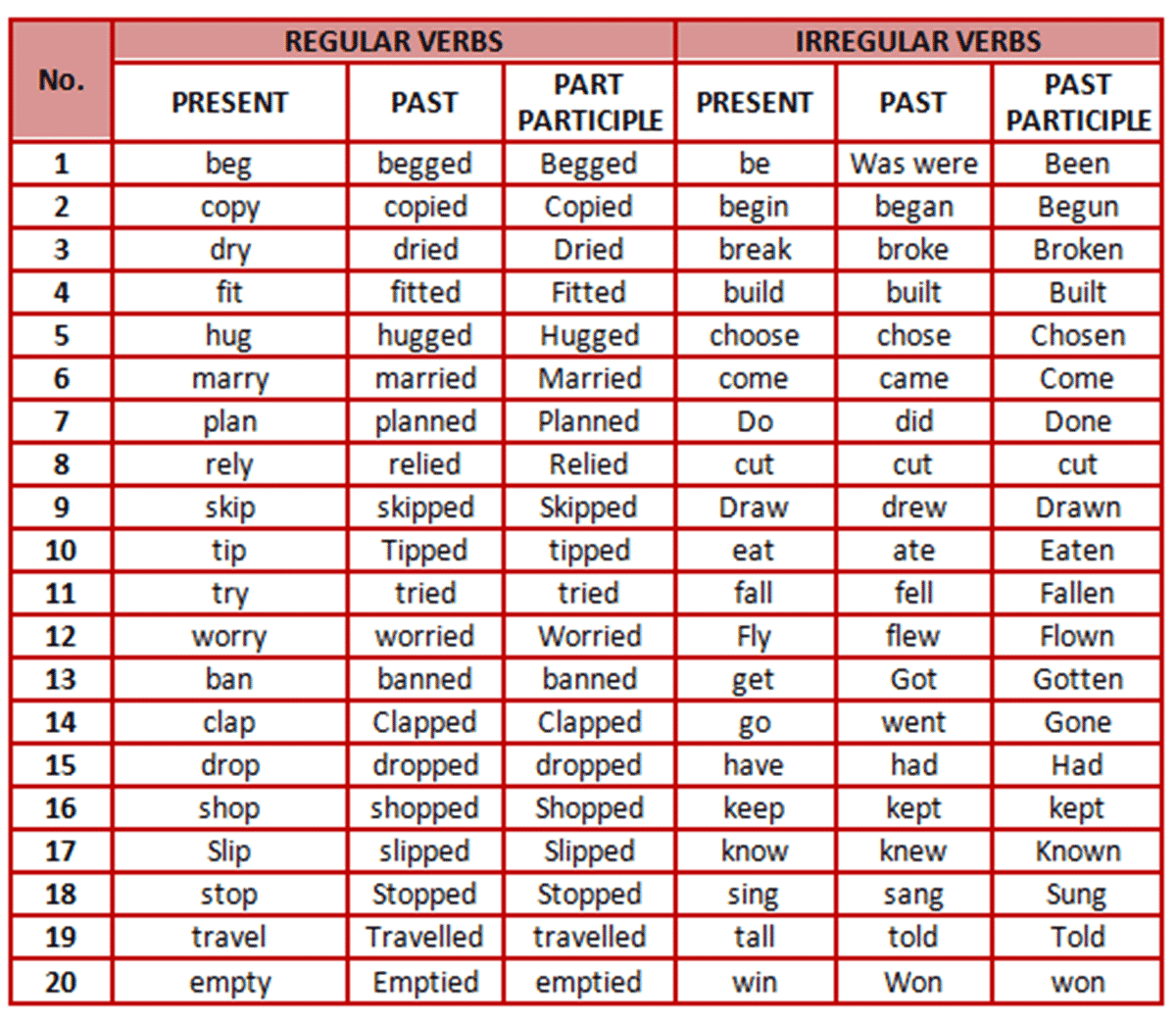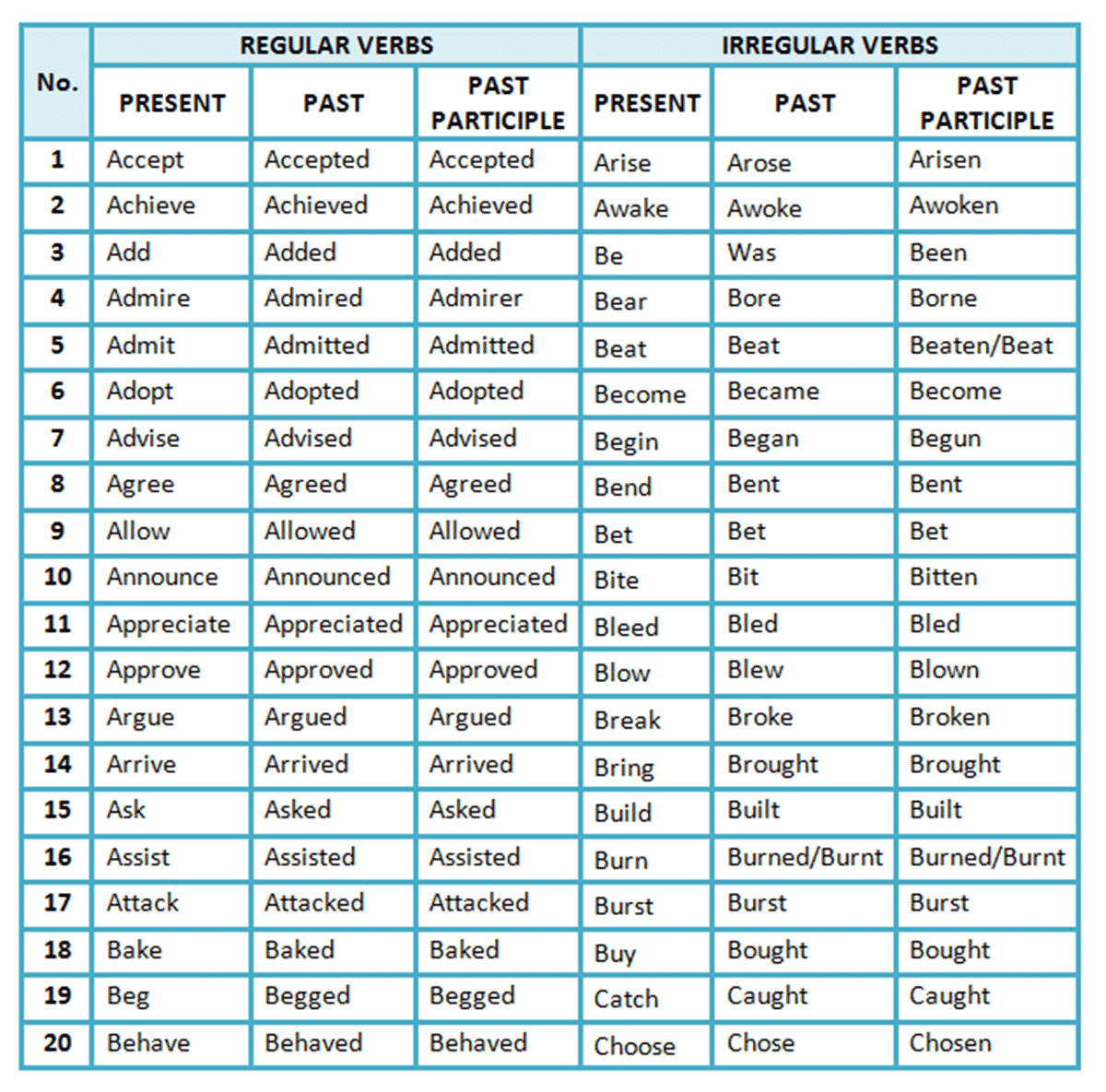How many types of verbs are there? In addition to the main categories of physical verbs, mental verbs, and state of being verbs, there are several other types of verbs.
A verb is one of the main parts of a sentence or question in English. In fact, you can’t have a sentence or a question without a verb! That’s how important these “action” parts of speech are.
The verb signals an action, an occurrence, or a state of being. Whether mental, physical, or mechanical, verbs always express activity.
In fact, there are more than ten different types of verbs that are grouped by function.
- Compound Verbs
- Finite and Non-finite Verbs
- Auxiliary Verbs
- Stative Verbs
- Modal Verbs
- Participles, Gerunds & Infinitives
- Regular and Irregular Verbs
Different Types of Verbs: Compound Verbs
A compound verb is a verb that consists of more than one word. There are several types of compound verbs including: prepositional verbs, phrasal verbs, verbs with auxiliaries, and compound single-word verbs. Let’s find out about each of these types of verbs.
There are four types of compound verbs:
Prepositional verb
- Mr. DeJulius asked for sources to be cited on our research paper.
- Michael argues with Robert about politics.
Phrasal verb
- Tammy ran away from home.
- Patrick looked up the phone numbers of all the members.
Verb with auxiliaries
- Mrs. Behrens was helping another student, so she could not answer my question.
- Tiffany is washing her car.
Compound single-word verb
- Jaimie daydreams during class.
- Darlene sight-reads sheet music.

Finite and Non-finite Verbs
Finite verb forms show tense, person and number.
- She was waiting in the room before he came in.
- Does your brother know my brother?
Non-finite verb forms do not show tense, person or number.
- She tiptoed round the house so as not to wake anyone.
- You need to paint the whole cupboard, starting from the bottom.


Auxiliary Verbs
An auxiliary verb is a verb that adds functional or grammatical meaning to the clause in which it appears, such as to express tense, aspect, modality, voice, emphasis, … Auxiliary verbs usually accompany a main verb.
- Do you want tea?
- He has given his all.


Stative Verbs
A stative verb is one that describes a state of being, in contrast to a dynamic verb, which describes an action.
- Paul feels rotten today. He has a bad cold.
- Our client appreciated all the work we did for him.


Modal Verbs
A modal verb is a type of verb that is used to indicate modality – that is: likelihood, ability, permission and obligation. Examples include the English verbs can/could, may/might, must, will/would and shall/should.
- Tom can write poetry very well.
- You may not wear sandals to work.
- Shall we go for a walk?




Participles, Gerunds & Infinitives
The three verbals— gerunds, infinitives, and participles—are formed from verbs, but are never used alone as action words in sentences. Instead, verbals function as nouns, adjectives, or adverbs. These verbals are important in phrases.
The gerund ends in -ing and functions as a noun.
- Jumping is fun.
The infinitive is the base form of a verb with to.
- She had a suggestion to offer.
A participle is a verb that ends in -ing or -ed, -d, -t, -en, -n.
- The dancing parrots entertained the crowd.
- The wrecked sailboat washed up on shore.



Regular and Irregular Verbs
A regular verb is any verb whose conjugation follows the typical pattern, or one of the typical patterns, of the language to which it belongs.
A verb whose conjugation follows a different pattern is called an irregular verb.
- I walked for several miles as part of my morning work-out.
- I bend my hand while removing the box from the loft.





